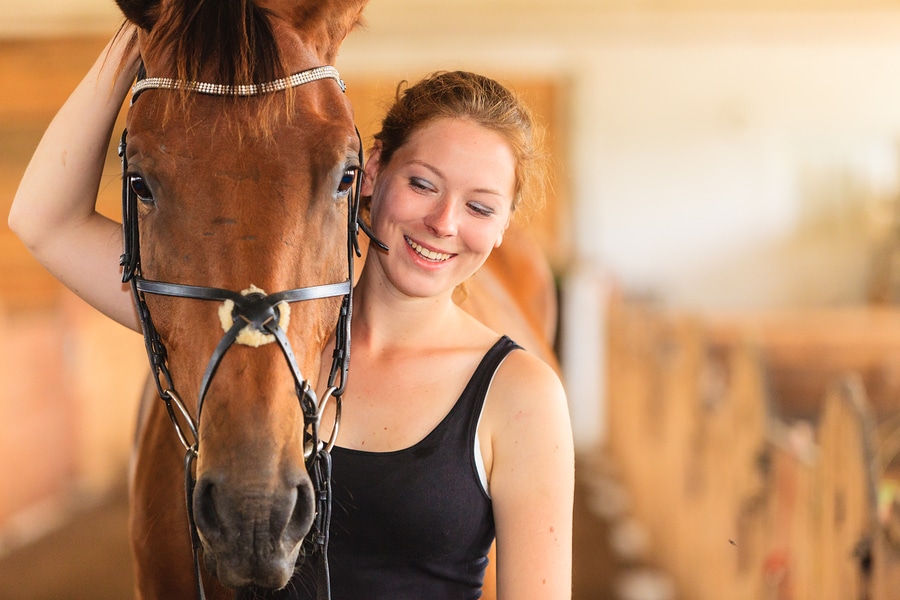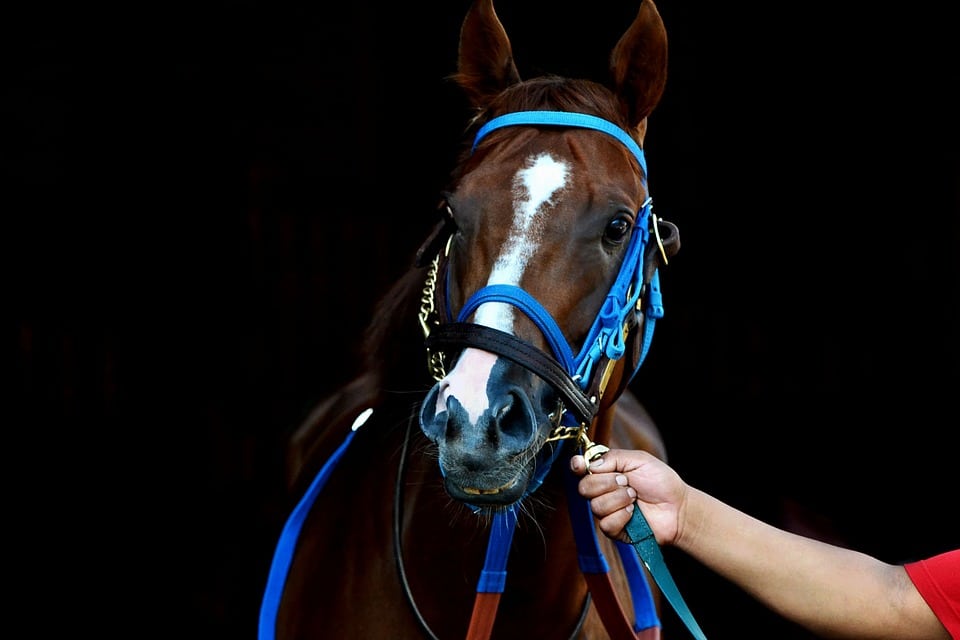As an alternative to purchasing a horse, you could take a horse on loan. Some horse owners prefer this option as it can remove the costs associated with buying a horse or pony.
However, both loaning and leasing can have potential problems for the unwary. Frequently the arrangement is merely an unwritten understanding between friends and should things go wrong it may well be the horse’s welfare that could suffer.
You should make sure that you understand the commitment required in terms of the costs involved and the time needed which can affect your whole way of life.
Don’t take any horse or pony on loan just because it is available or is ‘free’ to loan. The capital cost associated with buying a horse or pony may be alleviated by leasing or loaning, but the ‘running’ costs can be high, particularly if the stables are rented, or if the livery fees have to be met, not forgetting that various feedstuffs may need to be bought in.
Important Considerations Before Loaning
As with buying a horse or pony that we discussed in an earlier post, leasing or loaning should not be entered into lightly. You must consider the facilities and resources required to keep a horse, your riding ability and the type and suitability of the horse or pony that is available. Is the horse or pony healthy and capable of the activities you intend to pursue?
Don’t forget that you are as responsible for the health of the horse and well-being as if it were your own, and this responsibility will last for the full duration of the loan. Furthermore, the contract should be mutually acceptable. Don’t agree to something if you do not intend to put it into practice. Is the contract fair and reasonable or does it bind you to impractical constraints that would reduce your time.
Always make sure that you have a written agreement with the horse’s owner, even if they are a very good friend. Loaning or borrowing horses can give rise to disputes and can be a fairly sure way to lose friends. Leases are generally employed in the case of competition or stud animals, fees are negotiable depending on the animal’s ability, productivity etc.
The type of loan varies depending on its duration, and purpose and may include specific conditions. Usually, no fee is involved. The concept of leasing or loaning your horse, as opposed to selling it, can appear very attractive to many owners. The owner can ensure that the animal goes to and remains at a good home, but still play a part in its future. It is particularly useful for those owners who wish the loan to be only a temporary arrangement, such as those owners who are going away to college or taking a spell abroad.
Before loaning your horse or pony, carefully ‘vet’ the loanee to ensure that they are going to adequately provide for your animal. All owners should think very carefully about their horse’s welfare and, to the best of their ability, check that the arrangements for the care of the animal are going to provide for the individual’s needs. This is especially important if you are loaning out a horse that is for example, suitable only for light hacking or as a companion because there could be welfare implications if the animal were then to be used for other purposes.
Creating a Written Loan Agreement

Draw up a contract to protect your own interests, but in a manner that is fair and reasonable and above all, those of your horse. How will you ensure that the arrangements within the contract, agreement are carried out?
You may wish to review it on a regular basis or make provision for visiting the pony. Unless it has formed part of the original agreement, do not expect to walk in and be able to do as you like with your horse on any such visits. If you have any cause for concern, such as a breach of contract, contact a solicitor who will be able to advise you on the best course of action.
There are numerous reasons why a horse or pony may be put out on loan and likewise, there are several types of loan.
Often an animal is loaned permanently because the owner doesn’t want to sell the animal but doesn’t wish, or is unable to keep it either. Permanent loans are often used for ponies that have been outgrown or companion animals that are old or unable to work. These arrangements must be entered into carefully as frequently animals have been sold on by the loanee without the owner’s knowledge. This is of particular concern in the case of companion animals which, if sold, may face an uncertain future giving rise to concerns for the long-term welfare of the animal.
It may be kinder to loan the animal out for a few years and then reassess its future.
The standard loan arrangement usually involves a horse that is fit and well and can be worked, but due to individual circumstances. There may be conditions attached, for example; the type of use the animal can be put to or a stipulation that it must stay in its present yard.
Often a horse owner will, due to lack of finances or time, advertise for a ‘sharer’ to help with a horse. The arrangement may be on a ‘help in return for rides’ basis, or shared use of the horse in return for payment towards the cost of keeping the horse.
Key Points to Include in Loan Contract
Generally, the horse remains at the yard specified by the horse owner. The BHS produce a free template loan agreement which may be downloaded from the welfare pages of the website. I would always recommend that a legal expert checks any agreement that you are considering entering into.
The following points should be covered in the course of discussions between the two parties and most, if not all, included in the actual agreement.
• The owner may wish to give the lessee first refusal if eventually selling.
• Duration of Lease/Loan – Review date. Notice required if cancelling agreement.
• Fee – if any.
• Insurance – Third Party (legal liability) – both parties should have adequate cover.
Horse/Pony – the owner should take out the policy but the lessee may reimburse the premium. Personal Accident – the lessee should be aware that riding is a ‘high-risk’ sport.
• Tack (if included) – use, repair, all risks insurance. All tack should be returned in good condition.
• Use of Horse – limited or unlimited use (in line with insurance). If leased to a commercial establishment, may the horse/pony be used for hire/reward?
• Rider – named or any rider.
• Veterinary Surgeon – The owner may wish to specify which vet, although the lessee is responsible for ‘running costs’.The owner must be informed in advance of major surgery or total anaesthetic.
• Farrier – must be kept regularly shod/ maintenance requirements.
• Feed. Stabling. Fencing. Grazing. (e.g. general standard in accordance with BHS/PC Manual of Horsemanship).
• Special conditions – the lessee should be aware of any vices, allergies etc. Feed supplements or medicaments may be specified.
• Rights of the owner to visit – lessees should be allowed to go about their lawful business but the owner should be advised of any change in management or domicile.
The British Horse Society strongly advocates that in all circumstances there should be a written agreement that both parties sign. Ideally, this should be drawn up by a solicitor. The object of such an agreement is to pre-empt problems and protect the interests of both parties. The agreement should be fair and reasonable, and both parties should be clear about exactly what they have agreed to.
Any agreement should not be entered into without due consideration being given to the responsibilities of both parties involved in the undertaking. It may be considered that many of the points can be taken for granted between friends, but circumstances do change and it is only sensible to be business-like and have a signed agreement to which both parties can refer.
Any disagreements that may arise between the two parties must not be permitted to interfere with the minimum standards of care and general welfare of the animal involved. In such disputes, the original agreement should be examined to clarify what was agreed at the outset of the lease or loan.
The Stable Doctor
https://primestables.co.uk/news
Research – The British Horse Society
Advice is given without legal responsibility


